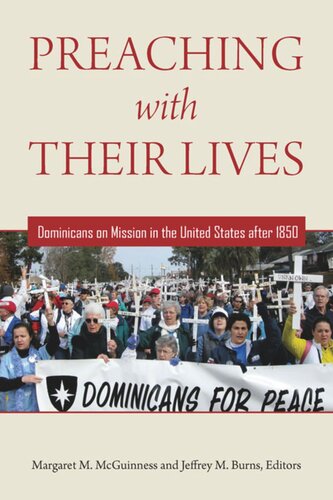

Most ebook files are in PDF format, so you can easily read them using various software such as Foxit Reader or directly on the Google Chrome browser.
Some ebook files are released by publishers in other formats such as .awz, .mobi, .epub, .fb2, etc. You may need to install specific software to read these formats on mobile/PC, such as Calibre.
Please read the tutorial at this link: https://ebookbell.com/faq
We offer FREE conversion to the popular formats you request; however, this may take some time. Therefore, right after payment, please email us, and we will try to provide the service as quickly as possible.
For some exceptional file formats or broken links (if any), please refrain from opening any disputes. Instead, email us first, and we will try to assist within a maximum of 6 hours.
EbookBell Team

0.0
0 reviewsThis volume tells the little-known story of the Dominican Family—priests, sisters, brothers, contemplative nuns, and lay people—and integrates it into the history of the United States. Starting after the Civil War, the book takes a thematic approach through twelve essays examining Dominican contributions to the making of the modern United States by exploring parish ministry, preaching, health care, education, social and economic justice, liturgical renewal and the arts, missionary outreach and contemplative prayer, ongoing internal formation and renewal, and models of sanctity. It charts the effects of the United States on Dominican life as well as the Dominican contribution to the larger U.S. history. When the country was engulfed by wave after wave of immigrants and cities experienced unchecked growth, Dominicans provided educational institutions; community, social, and religious centers; and health care and social services. When epidemic disease hit various locales, Dominicans responded with nursing care and spiritual sustenance. As the United States became more complex and social inequities appeared, Dominicans cried out for social and economic justice. Amidst the ugliness and social dislocation of modern society, Dominicans offered beauty through the liturgical arts, the fine arts, music, drama, and film, all designed to enrich the culture. Through it all, the Dominicans cultivated their own identity as well, undergoing regular self-examination and renewal.
Will appeal to scholars across a variety of spectrums (art, liturgy, missiology, education, history, religious life) because its topics relate to a variety of disciplines